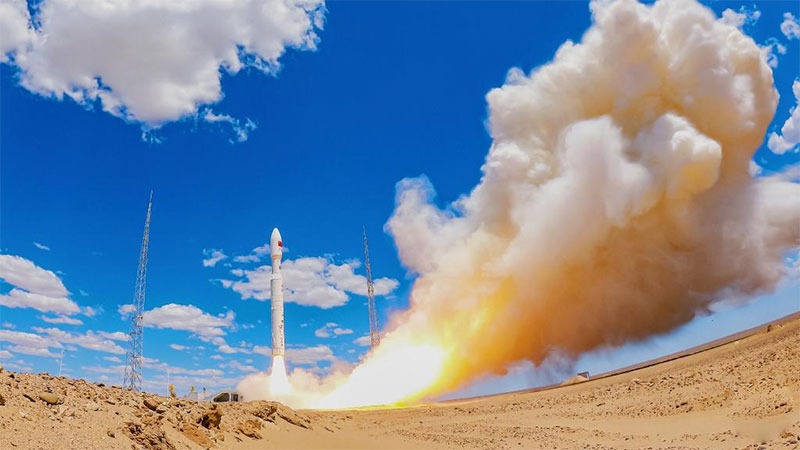Draft AI law to be reviewed by China's top legislature
A draft artificial intelligence law will be submitted to the Standing Committee of the National People's Congress for review in 2023, according to the State Council, China's cabinet. If the draft is adopted, it will be China's first national legislation covering AI.
Both legal and AI experts hold great expectations toward the law, saying it is part of the country's overall development plan on AI. The up-to-date law that is expected to regulate AI technology's research and development and supply chains and its application is urgently in need, as the industry is developing at an unprecedented speed.
Establishing an AI-related law is part of a national development top-level design that dates back to 2017. AI technology has been widely applied in multiple fields, resulting in great challenges that need to be addressed, which explains the urgency for a law on AI, Li Zonghui, the vice president of the Institute of Cyber and Artificial Intelligence Rule of Law affiliated with the Nanjing University of Aeronautics and Astronautics, told the Global Times.
The New Generation Artificial Intelligence Development Plan that was released by the State Council of China in 2017 highlights the need to establish an initial system of AI laws, regulations, ethics and policies to form the ability to assess and control AI security.
The plan said that by 2025, AI should be a major force driving the country's industrial upgrading and economic transformation.
If the law is adopted, it will be China's first national law on AI, experts said. China's cyber authorities have formulated departmental rules on AI such as the "Regulations on the Management of Internet Information Service Algorithm Recommendation." Earlier, Shenzhen released the country's first local-level regulation to standardize its AI industry.
Amid the frenzy of ChatGPT, China's cyber authorities on April 1 released a draft of AI Generated Content (AIGC) service regulation in an attempt to explore China's own solution in managing the industry.
AI technology is widely used in fields such as medical care, transportation, finance, education, entertainment and law, which has caused many practical problems of infringing on individual rights and interests and bringing hidden dangers to public safety, Li said.
AI technology is developing at an unprecedented speed involving text, pictures and videos, and it may penetrate our lives in forms that we cannot even imagine, Zhu Tingshao, a research fellow at the Institute of Psychology of Chinese Academy of Sciences who specializes in AI studies, told the Global Times.
Imagine what will happen if AI technology is rampantly and abusively used. Fake information generated would be widely spread and criminal forces would wantonly use AI as an "accelerator" to commit crimes, Zhu warned, emphasizing that an up-to-date law on AI will ensure the industry develops on a proper and healthy path.
Photos
Related Stories
- Internet plays a role in law popularization
- Senior lawmaker stresses need to adhere to socialist rule of law with Chinese characteristics
- Highlights of China's judicial, procuratorial, public security work plan for 2023
- China revises law on wildlife protection
- China's revised law on women protection to take effect on Jan. 1
- Senior Chinese lawmakers meet to hear reports on draft law deliberations
- Draft rules aim to conserve ecosystems
- Draft law on financial stability targets risk
- Draft law on financial stability submitted to China's top legislature for 1st reading
- China mulls revising law on marine environment protection
Copyright © 2023 People's Daily Online. All Rights Reserved.









